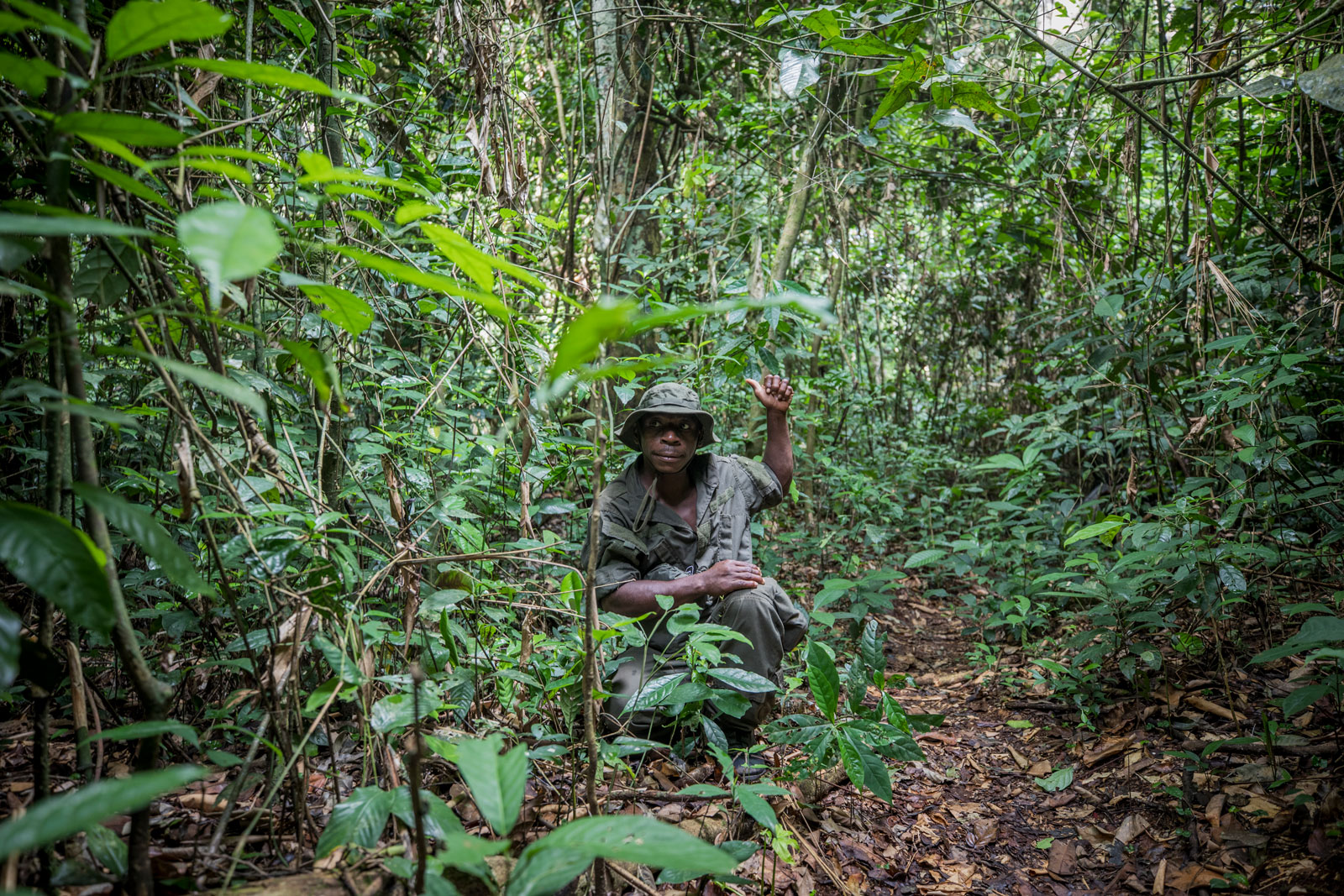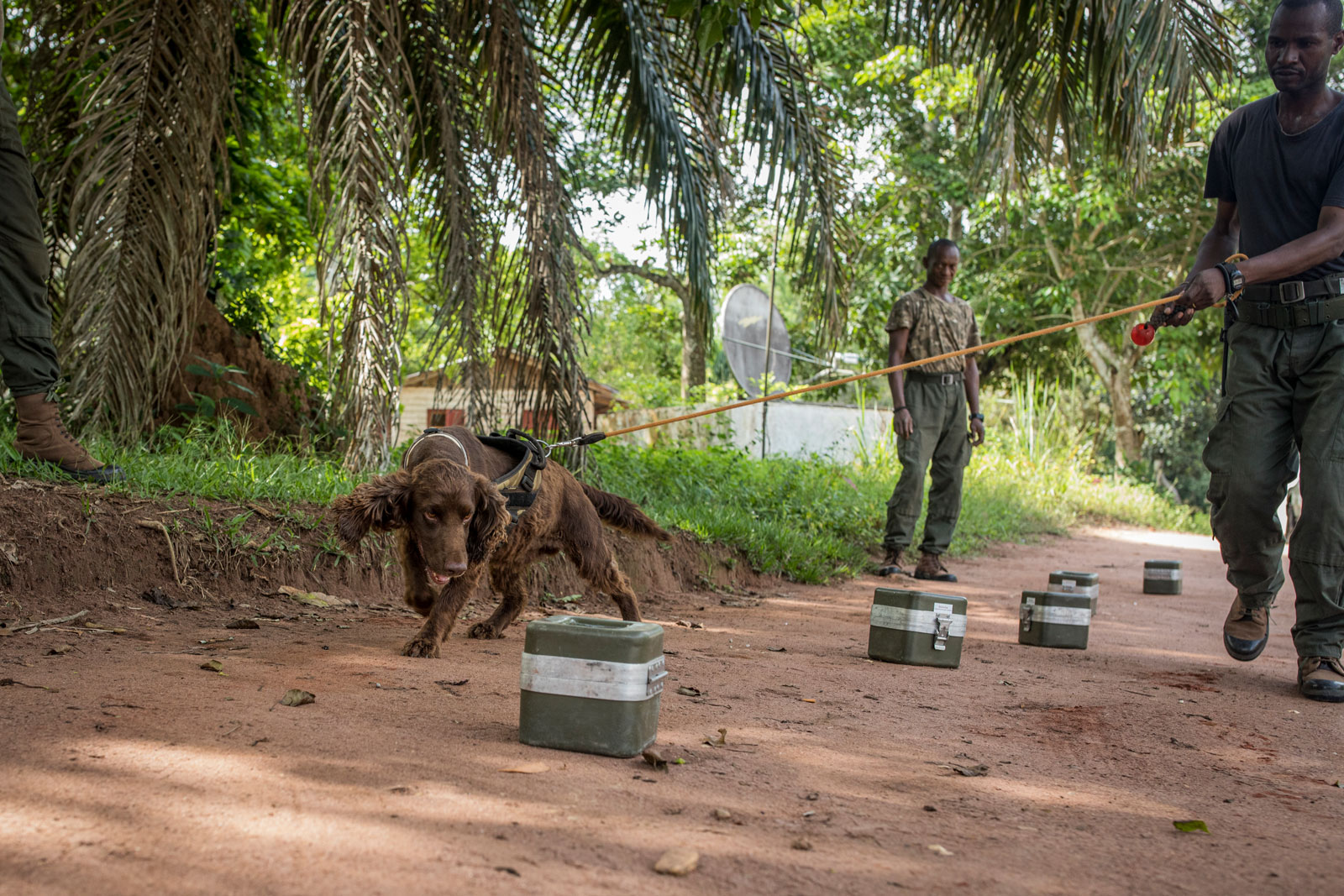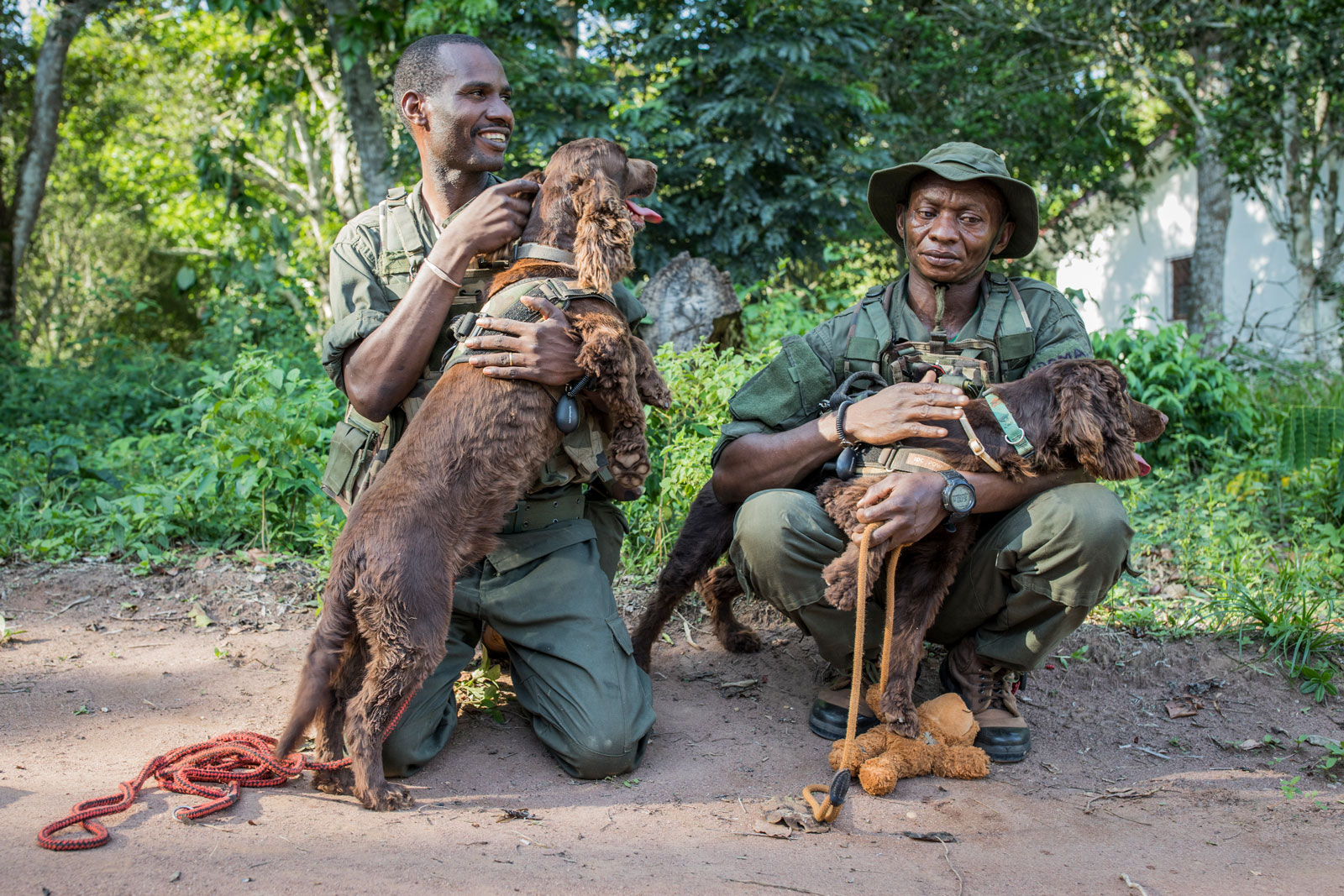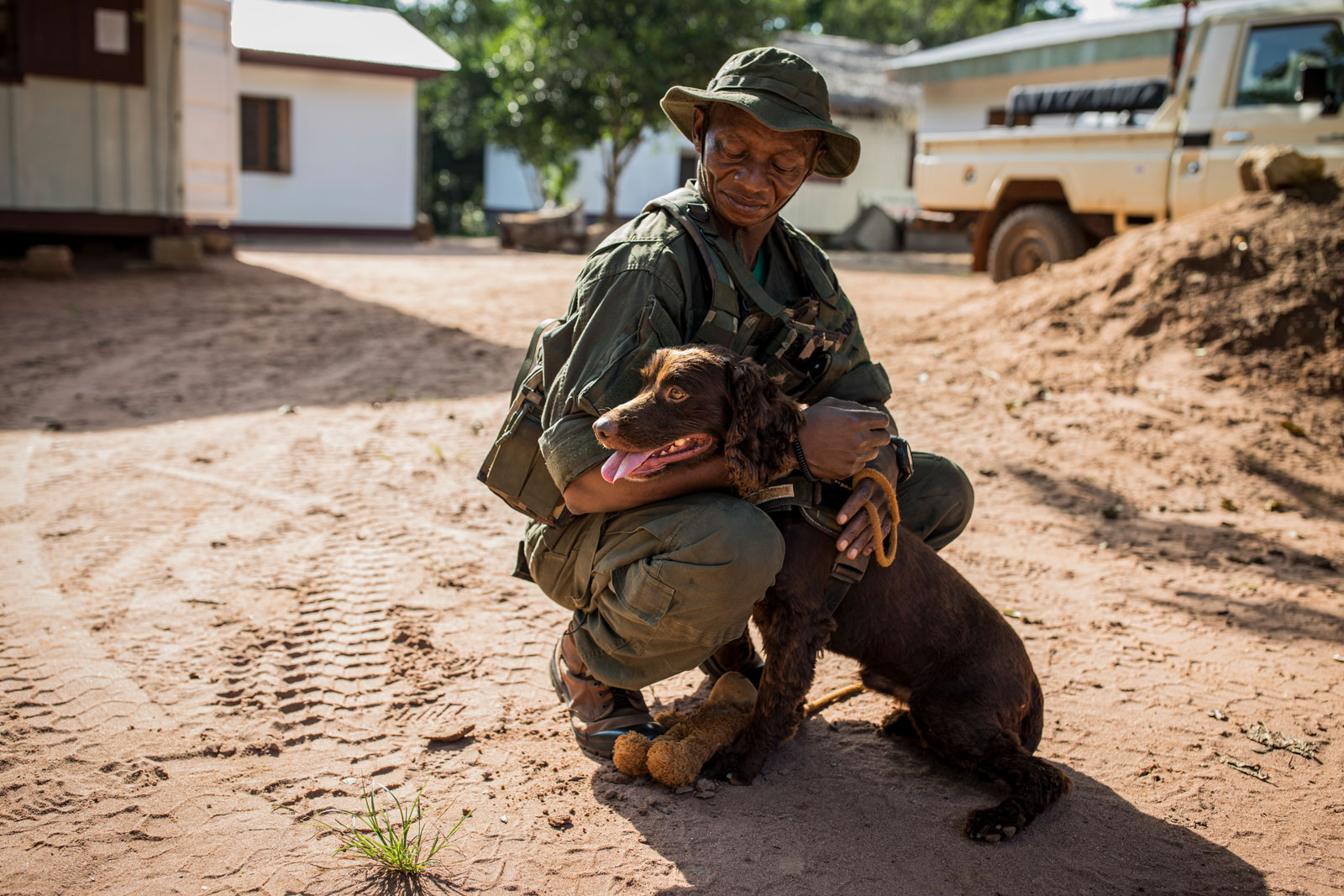
It is estimated that the illegal trade in wild animals generates up to 20 billion US dollars in turnover every year. This puts wildlife crime in fourth place in the ranking of organized crime, after drug trafficking, human trafficking and product piracy.
Nowhere in Africa is ivory trade more intense than in Central Africa. The extent of this senseless killing is dramatic: A population census in several Central African countries has shown that the population of forest elephants has decreased by two thirds within only 8 years (between 2008 and 2016). Several forest elephant populations are on the brink of extinction.
Stopping the poaching is the only way to give forest elephants, gorillas and many other species a chance of survival in the long run in the rainforests of the Congo Basin. This is about nothing less than preserving the natural capital for future generations. Protected areas such as Dzanga-Sangha are the backbone for achieving this goal.


How we proceed
Daily patrols in Dzanga-Sangha are an important element of the work against poaching. On missions lasting several days, ecoguards track down illegal actions and confront poachers. This is strenuous and dangerous work for which they must be well trained and equipped. To ensure this, we work with Chengeta Wildlife, an organization specializing in the professional training of ecoguards.
Since autumn 2018, the ecoguards have also been supported by the two sniffer dogs, “Bobby” and “Mitch”. They specialize in tracking down ivory, pangolin scales and black powder. Together with their dog handlers, they for example search vehicles and track down smuggled goods with their fine sense of smell. But their good noses are also used at entry and exit points of poacher trails to find illegal firearms and hidden tusks.

Prevention is also part of the fight against poaching – in other words, anticipating the planned crime before it is even committed. Our specially trained team systematically collects information with the aim of deeply penetrating the poaching network and understanding it. Evidence for criminal acts is secured in order to convict criminals at all levels of the poaching network and bring them to justice.
All this can only be successful if local people have the motivation and opportunity to participate in this work. Improving their living conditions, including providing access to education and health, is also part of the nature conservation work.
Cooperation also takes place with the two protected areas in Congo and Cameroon, which together make up the Trinational de la Sangha, or TNS for short. The aim is a coordinated approach against poaching – because poachers do not stop at borders.